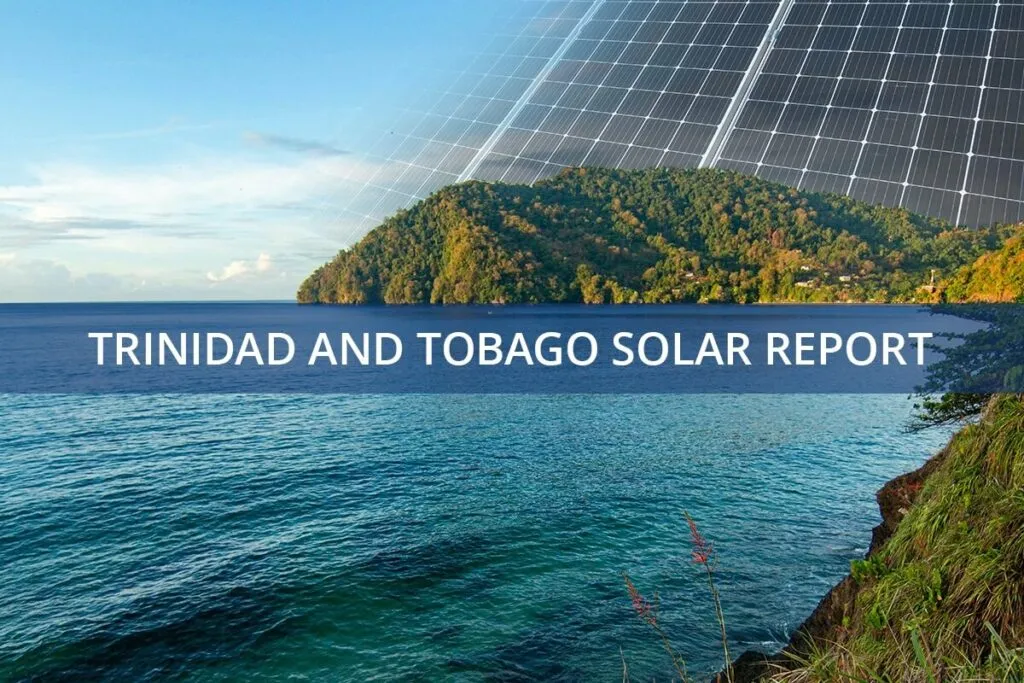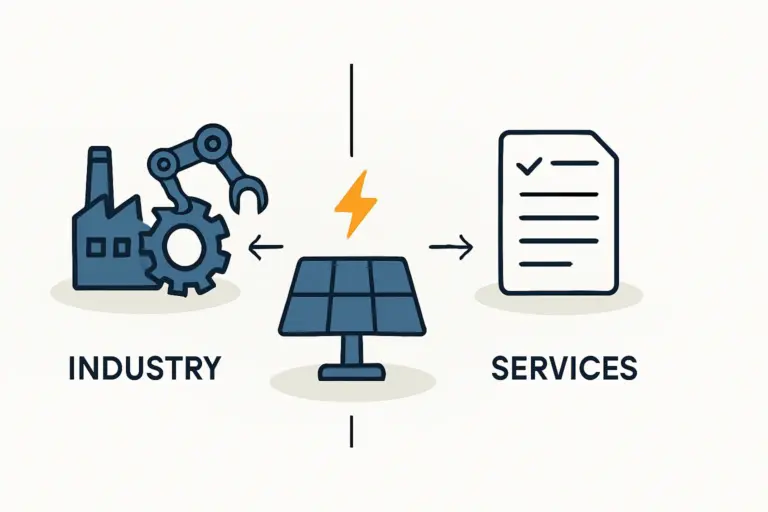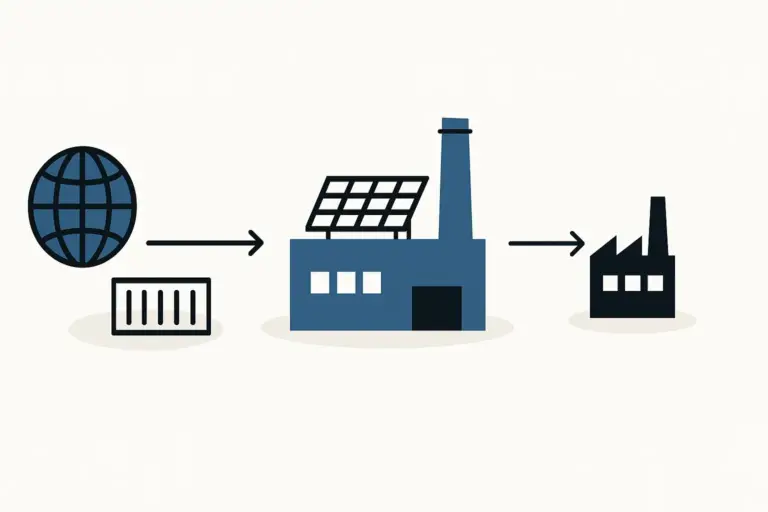For many entrepreneurs eyeing the Caribbean’s renewable energy sector, the focus often lands on project development or installation. Yet, an often-overlooked manufacturing opportunity lies within the region’s foundational trade agreements. Establishing a solar module production facility in Trinidad and Tobago opens a strategic gateway to over a dozen neighboring markets, offering the powerful competitive advantage of preferential market access.
This article examines the business case for leveraging the Caribbean Community (CARICOM) trade framework to manufacture solar modules in Trinidad and Tobago for export. It explains how entrepreneurs, even those new to the solar industry, can position themselves to meet regional demand while benefiting from a duty-free trade environment.
Understanding the CARICOM Advantage: More Than Just Geography
The Caribbean Community (CARICOM) is an economic integration of 15 member states and five associate members. At its core is the CARICOM Single Market and Economy (CSME), designed to facilitate the free movement of goods, services, capital, and labor throughout the region.
For a manufacturer, the CSME’s most compelling feature is duty-free trade. Goods originating within a member state can be exported to any other member state without the import tariffs applied to products from outside the bloc—like those from China, the United States, or Europe.
This creates an immediate price advantage and a protected market for regionally produced goods, including advanced products like solar modules. From an investor’s perspective, Trinidad and Tobago serves as an ideal base of operations thanks to its industrial capacity and logistical connections.

The Key to Unlocking Duty-Free Access: Rules of Origin
This duty-free access is not automatic. To qualify, products must comply with CARICOM’s ‘Rules of Origin’—a concept fundamental to the entire business strategy. In simple terms, these rules ensure that a product has undergone sufficient production within a member state to be considered ‘Made in CARICOM.’
Simply importing a finished product and repackaging it is not enough. The key criterion is ‘substantial transformation.’ For solar module manufacturing, this means imported raw materials—such as solar cells, glass, backsheets, and aluminum frames—must be transformed into a new product through a significant manufacturing process.
This process typically includes:
- Cell Stringing and Tabbing: Interconnecting individual solar cells to form strings.
- Layup: Assembling the layers of glass, encapsulant, cell strings, and backsheet.
- Lamination: Fusing the layers together under heat and pressure to create a durable, weatherproof module.
- Framing and Junction Box Assembly: Attaching the aluminum frame and electrical junction box.
- Testing: Conducting performance and safety tests, such as sun simulation and electroluminescence (EL) testing.
Based on J.v.G.’s experience with turnkey projects, confirming that a proposed production process meets the ‘substantial transformation’ criteria with CARICOM authorities is a critical first step in any feasibility study. It is the legal foundation upon which the entire export model is built.

Why Trinidad and Tobago is a Prime Candidate for a Solar Hub
While several CARICOM nations could host a factory, Trinidad and Tobago presents a unique combination of advantages that make it a leading candidate for a regional solar manufacturing hub.
- Established Industrial Base: The nation has a long history of industrial activity, particularly in the energy sector, which provides a foundation of technical expertise and infrastructure.
- Logistical Prowess: With two major international ports, Port of Spain and Point Lisas, the country is a well-established logistical hub for the Caribbean, facilitating both the import of raw materials and the export of finished modules.
- Skilled Workforce: An available pool of technical and industrial labor is already familiar with operating and maintaining sophisticated machinery.
- Stable Investment Climate: Trinidad and Tobago has a history of attracting foreign direct investment and offers a relatively stable and predictable business environment.
The Business Case: A Tangible Market Opportunity
The strategic advantage offered by CARICOM’s trade rules aligns perfectly with growing regional demand for renewable energy. Across the Caribbean, electricity costs are among the highest in the world, primarily due to a reliance on imported fossil fuels. This creates a powerful economic incentive for businesses and homeowners to adopt solar energy.
Many CARICOM governments have also established ambitious renewable energy targets to enhance their energy security and combat climate change. Manufacturing modules locally supports these goals while offering tangible benefits over international competitors:
- Cost Competitiveness: Eliminating import duties can make a Trinidad-made module significantly more affordable than a comparable product imported from outside the region.
- Reduced Lead Times: A regional supply chain drastically shortens delivery times compared to the weeks or months required for shipments from Asia.
- Enhanced Customer Service: A local presence allows for better technical support, warranty fulfillment, and relationship management with regional installers and distributors.
A small-to-medium-scale facility of 20-50 MW per year is a practical entry point, capable of serving the needs of several island nations. The investment required for such an operation is substantially lower than for a gigawatt-scale factory, making it an accessible venture for entrepreneurs and established companies looking to diversify.

Navigating the Path Forward: From Concept to Production
Turning this opportunity into a reality requires diligent planning and execution. The path from concept to a fully operational factory involves several distinct stages:
- Feasibility and Legal Confirmation: The first and most critical step is to obtain a definitive ruling from CARICOM or relevant national bodies that the proposed manufacturing process qualifies under the Rules of Origin.
- Strategic Business Planning: A detailed solar module manufacturing business plan is essential. This document should outline market analysis, financial projections, logistical plans for inter-island distribution, and a clear operational strategy.
- Technical Implementation: This phase involves facility design, equipment procurement, and installation. Partnering with an experienced provider for a turnkey solar production line can significantly de-risk this process by ensuring the machinery, processes, and staff training are aligned with international standards from day one.
Frequently Asked Questions (FAQ)
Is simple assembly of a solar panel kit enough to qualify for duty-free status?
It’s unlikely. CARICOM’s ‘substantial transformation’ rule generally requires more than final-stage assembly. Core manufacturing processes like cell stringing, lamination, and framing are typically needed to change the tariff classification of the components into that of a finished module. This must be formally verified.
Which CARICOM countries represent the largest markets for solar modules?
While market size varies, countries with high electricity rates, strong tourism sectors, and supportive government policies—such as Barbados, Jamaica, and the Bahamas—are often primary targets. However, a key advantage of a regional hub is the ability to profitably serve smaller markets, like those in the OECS (Organisation of Eastern Caribbean States), that might be overlooked by larger international manufacturers.
What is the main advantage over simply importing modules from China?
The primary advantage is cost. By avoiding import tariffs, a Trinidad-made module can achieve a superior final price in other CARICOM markets. The secondary benefits are just as important: faster and more reliable delivery, regional technical support, and the marketing value of a ‘Made in the Caribbean’ product that contributes to regional economic resilience.
Conclusion: Seizing a Regional Opportunity
The intersection of the CARICOM trade framework, Trinidad and Tobago’s industrial strengths, and the Caribbean’s urgent need for affordable renewable energy creates a compelling and actionable business opportunity. For the forward-thinking entrepreneur, this is a chance not only to build a profitable enterprise but also to play a pivotal role in the region’s sustainable energy future.
This path requires careful planning, from legal due diligence on trade rules to the technical implementation of the production line. For those ready to explore this venture further, developing a robust business plan and understanding the requirements for setting up a modern manufacturing facility is the critical next step.






